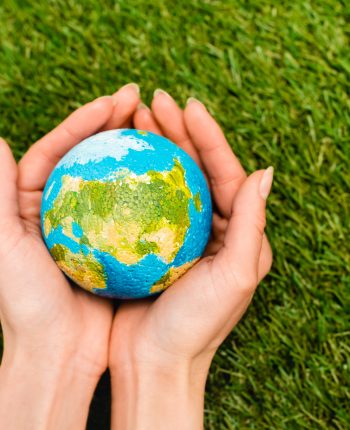
For many, going green means saving green – as in money – by reducing energy bills. But going green through home energy efficiency also means protecting the environment.
Simply put, energy efficiency is about using less energy to get the same job done and, in the process, avoiding high energy bills and unnecessary pollution. Many homes and business consume far more energy than needed.
Seemingly minor changes, like turning off the lights when not in use, washing laundry in cold water and using ceiling fans to keep cool in summer, can produce big results. If every American household traded out just one incandescent light bulb for an efficient LED bulb, the reduction in pollution due to fossil fuels would be equal to taking 670,000 cars off the road.
And even more rewarding, when you reduce your energy usage, you are playing a role in helping the environment. According to the Environmental Protection Agency, the residential and commercial sectors are responsible for nearly half of all energy consumption in U.S. buildings. Clearly, energy efficiency is a critical component in curbing climate change and protecting our environment.
When fossil fuels (gas, coal, oil) are burned in power plants to produce electricity, greenhouse gas emissions are also produced. By making a commitment to reducing your energy consumption, power plants will need to produce less electricity, thus reducing the amount of fossil fuels burned every day.
Energy efficient homes and businesses bring us closer to a greener and healthier planet. Reducing your energy usage reduces the demand for fossil fuels and, in turn, lower the levels of carbon dioxide in the atmosphere.
By being energy efficient, you will:
Help Reduce Climate Change
Climate change results in heat waves, drought, higher sea level, abnormal weather patterns and a greater likelihood of natural disasters. Small steps such as reducing your use of single-use plastics or installing low flow water systems can have a big impact.
Protecting Ecosystems
Simple things that can reduce fossil fuel emissions and protect our ecosystems include purchasing products with minimal packaging, recycling half of your household waste, reusing water bottles and plastic bags, or just adjusting the heating and cooling systems in your home while you’re sleeping at night or away during the day so you are not making them constantly run.
It Starts at Home
Less demand for energy means less need for harvesting fossil fuels. Here are easy ways to conserve at home:
- Wash full loads of laundry
- Run the dishwasher only when full
- Turn off the faucet while brushing your teeth
- Start a compost pile
- Create a lawn watering schedule using a watering calculator
- Harvest rainwater and install water-efficient appliances and showerheads.
Help Make the Air and Water Cleaner
Using water-saving techniques, such as not disposing of household chemicals/cleaning agents down the sink or toilet and avoiding using a garbage disposal, can:
- Save money
- Divert less water from our rivers, bays and estuaries
- Reduce water and wastewater treatment costs
Want to know what else you can do be more energy efficient and environmentally conscious? Visit NHSaves.com to learn more.
NHSaves, a partnership of Eversource, Liberty Utilities, New Hampshire Electric Co-Op, and Unitil, also offers incentive programs to help your home be more energy efficient, save you money and protect the environment.

